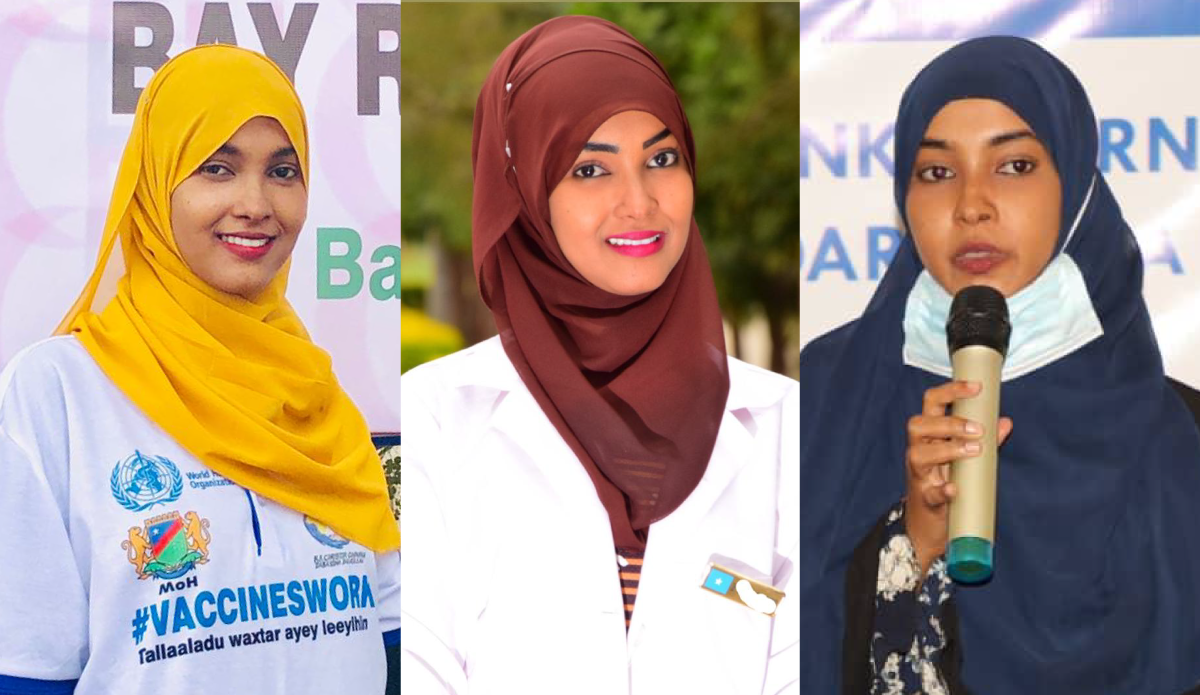Dr. Samia Mohamed Elmi: Using social media influence to help public health in Somalia
Mogadishu – Like so many young Somalis, Dr. Samia Mohamed Elmi is a passionate user of social media, especially Twitter.
She has become a well-known social media influencer with close to 40,000 followers on Twitter, and with two main areas of focus. One of them is Somalia’s image among the global public.
“If you google Somalia, all you see are negative images, such as conflict and ruins. I want to change that. We have tools in our hands now – social media – to change the negative perceptions of our country. Today, everything is digital, and that is why I choose to focus on social media to advocate for changes” Dr. Elmi says.
“It is up to us (youth) to showcase the positive side of our country, as well as our rich history and culture,” she adds. “The gorgeous and glorious side that the media never shows.”
The 26-year-old’s second area of focus in her role as a social media influencer coincides with her vocation: public health in Somalia.
“If you have knowledge in a certain field, you need to help your people understand it. That is what I do on social media,” the young doctor says. “I advise people to maintain good mental and physical health. I urge them to eat a well-balanced diet, exercise regularly and to get enough sleep and rest. Stay hydrated. Maintain oral hygiene. Quit smoking. Cut down on salt and sugar, and keep up with vaccinations to stay protected.”
Public health vocation
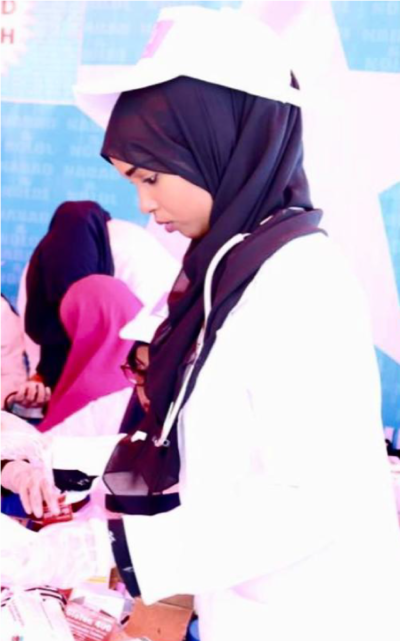
Dr. Elmi was born in Mogadishu in January 1995. She studied at Saacid Primary and Secondary School in Mogadishu from 2001 to 2008, before transferring to Hamar Boarding School, where she completed high school in 2011.
Her dream of giving back to society led her to pursue a career in public health.
“I pursued a Bachelor of Medicine and Bachelor of Surgery at Jazeera University in Mogadishu. Upon graduating in 2017, I joined the Somali Young Doctors Association (SOYDA) as a junior doctor to help vulnerable women and children – mainly internally displaced persons (IDPs),” she says.
Dr. Elmi worked in IDP camps in Mogadishu before moving to the Bay region in South West State, where she was employed as a Regional Officer for the United Nations-backed Expanded Programme on Immunization (EPI) for the Ministry of Health from 2019 to 2020.
“Vaccines save lives and boost children’s immunity,” Dr. Elmi notes. “They also help control disease outbreaks in children – it’s their right to have a healthy upbringing.”
The World Health Organization’s EPI partners with health authorities to vaccinate Somali children against eight vaccine-preventable diseases: childhood tuberculosis, diphtheria, haemophilus influenzae type B, hepatitis B, measles, pertussis, polio and tetanus.
The scheme supports routine vaccination against these diseases in 607 health facilities in 117 accessible districts out of a total of 123 districts across Somalia, by encouraging families with babies to visit their nearest health facility five times before their children reach one year of age.
Most of these health facilities, such as mother and child health clinics, are managed by non-governmental organizations and the Somali Government, with support from organizations such as Gavi, the Vaccine Alliance.
Working for the EPI also helped develop the young physician’s skills in other ways. She completed its nine-month certificate course on the Expanded Programme on Immunization Leadership and Management Programme (EPI LAMP), which aims to strengthen national leadership and management of immunisation programmes in Gavi-supported countries.
“EPI jump-started my career. I learnt how to develop EPI policy, strategies and procedures, and how to implement vaccination campaign plans,” she recalls. “I also received capacity-building training on disease surveillances and monitoring and supervision.”
When she completed the EPI LAMP course in May this year, she tweeted on her account @SamiaMahmet: “So far, it was one of the best programme I ever attended, blessed that I learned and I am finally able to say that I made it! Thanks to everyone [Gavi, Yale School of Public Health, PATH, Global Health Equity, and the Federal Ministry of Health] who was a part of the successful completion of this programme.”
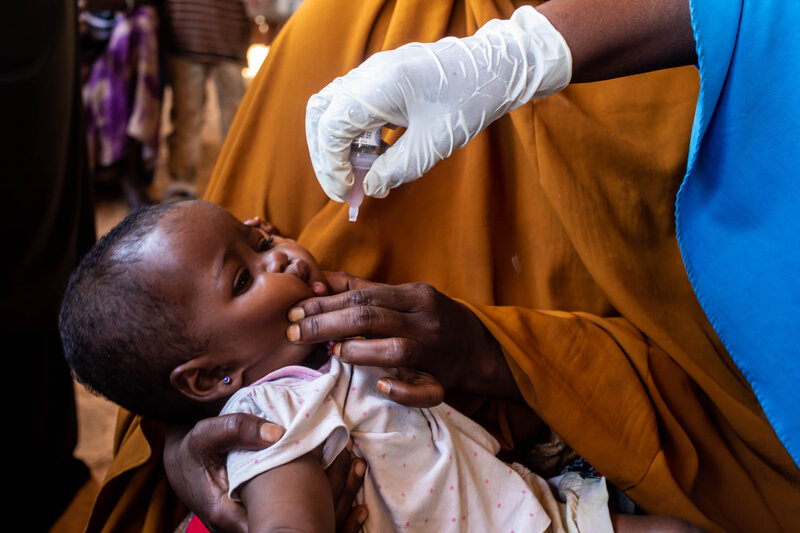
Communicating on COVID-19
Recent months have seen Dr. Elmi’s social media output concentrate on Somalia’s fight against the coronavirus disease (COVID-19). The pandemic has presented health, economic and social challenges. These include vaccine rejection by members of the public.
“Mistrust and vaccine hesitancy is caused by myths and misconceptions,” she says. “People should not fear being vaccinated. The vaccine is safe and free. Please, go for it. Save lives.”
“While the COVID-19 vaccine is not 100 per cent efficient, it will help you to not get hospitalized in case you are infected. You still need to be cautious and protect others by masking,” Dr. Elmi adds. “But people should not fear vaccination. There is no medicine for COVID-19, and they should know that prevention is always better than cure. Fully vaccinated people are less likely to get seriously ill.”
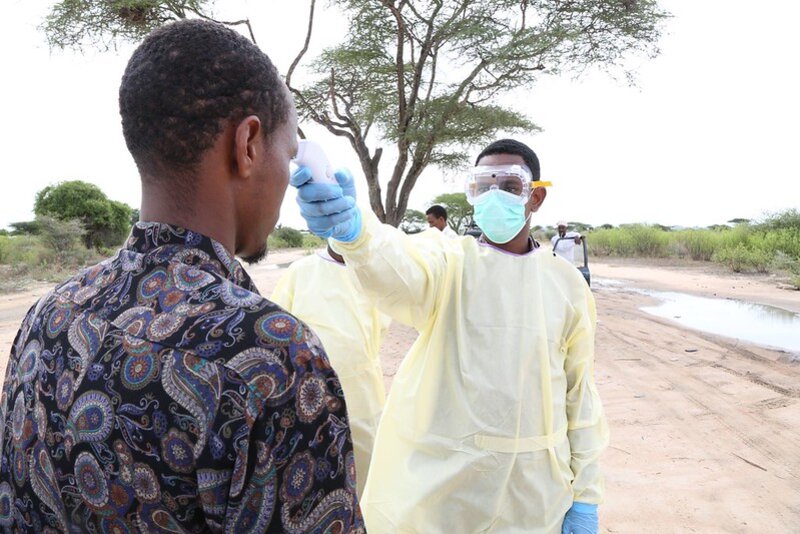
The medic hopes that her contribution to the public discussion can add to the ongoing communications and awareness-raising campaigns being carried out by Somali health authorities with the support of UN agencies and other international partners.
“The awareness should start at the family level, and then friends, community leaders, clerics, the media and policy-makers. People like to listen to people they trust. And those unwilling to take the COVID-19 vaccine will change their minds once a trusted member in their circle explains its benefits to them,” she says.
“If you get the communication right from the start,” Dr. Elmin continues, “by conveying clear and culturally appropriate messages about the pandemic and vaccine, people will certainly develop confidence and trust – and will get vaccinated in large numbers.”
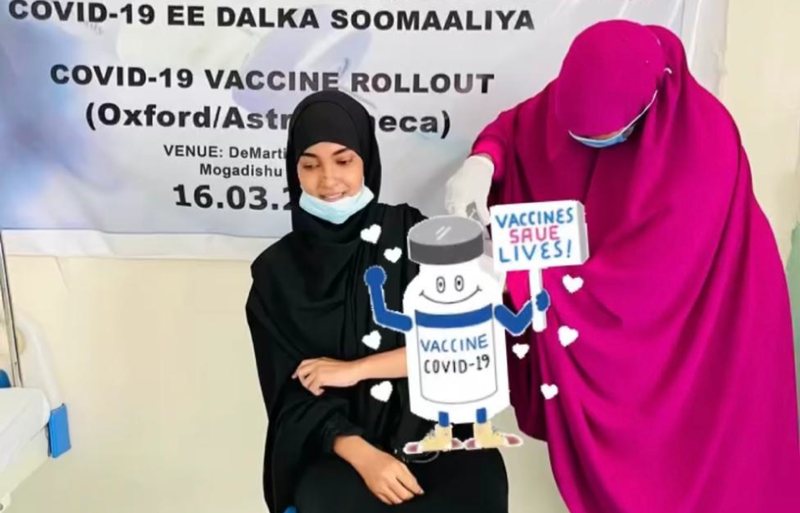
 UN
UN
